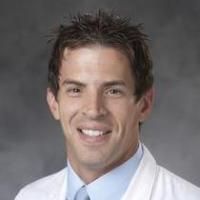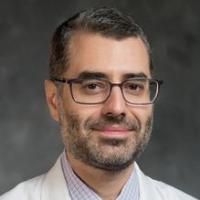Dysregulated transcriptional responses to SARS-CoV-2 in the periphery.
Date
2021-02-17
Journal Title
Journal ISSN
Volume Title
Repository Usage Stats
views
downloads
Citation Stats
Attention Stats
Abstract
SARS-CoV-2 infection has been shown to trigger a wide spectrum of immune responses and clinical manifestations in human hosts. Here, we sought to elucidate novel aspects of the host response to SARS-CoV-2 infection through RNA sequencing of peripheral blood samples from 46 subjects with COVID-19 and directly comparing them to subjects with seasonal coronavirus, influenza, bacterial pneumonia, and healthy controls. Early SARS-CoV-2 infection triggers a powerful transcriptomic response in peripheral blood with conserved components that are heavily interferon-driven but also marked by indicators of early B-cell activation and antibody production. Interferon responses during SARS-CoV-2 infection demonstrate unique patterns of dysregulated expression compared to other infectious and healthy states. Heterogeneous activation of coagulation and fibrinolytic pathways are present in early COVID-19, as are IL1 and JAK/STAT signaling pathways, which persist into late disease. Classifiers based on differentially expressed genes accurately distinguished SARS-CoV-2 infection from other acute illnesses (auROC 0.95 [95% CI 0.92-0.98]). The transcriptome in peripheral blood reveals both diverse and conserved components of the immune response in COVID-19 and provides for potential biomarker-based approaches to diagnosis.
Type
Department
Description
Provenance
Subjects
Citation
Permalink
Published Version (Please cite this version)
Publication Info
McClain, Micah T, Florica J Constantine, Ricardo Henao, Yiling Liu, Ephraim L Tsalik, Thomas W Burke, Julie M Steinbrink, Elizabeth Petzold, et al. (2021). Dysregulated transcriptional responses to SARS-CoV-2 in the periphery. Nature communications, 12(1). p. 1079. 10.1038/s41467-021-21289-y Retrieved from https://hdl.handle.net/10161/22409.
This is constructed from limited available data and may be imprecise. To cite this article, please review & use the official citation provided by the journal.
Collections
Scholars@Duke

Micah Thomas McClain

Ricardo Henao

Ephraim Tsalik
My research at Duke has focused on understanding the dynamic between host and pathogen so as to discover and develop host-response markers that can diagnose and predict health and disease. This new and evolving approach to diagnosing illness has the potential to significantly impact individual as well as public health considering the rise of antibiotic resistance.
With any potential infectious disease diagnosis, it is difficult, if not impossible, to determine at the time of presentation what the underlying cause of illness is. For example, acute respiratory illness is among the most frequent reasons for patients to seek care. These symptoms, such as cough, sore throat, and fever may be due to a bacterial infection, viral infection, both, or a non-infectious condition such as asthma or allergies. Given the difficulties in making the diagnosis, most patients are inappropriately given antibacterials. However, each of these etiologies (bacteria, virus, or something else entirely) leaves a fingerprint embedded in the host’s response. We are very interested in finding those fingerprints and exploiting them to generate new approaches to understand, diagnose, and manage disease.
These principles also apply to sepsis, defined as life-threatening organ dysfunction caused by a dysregulated host response to infection. Just as with acute respiratory illness, it is often difficult to identify whether infection is responsible for a patient’s critical illness. We have embarked on a number of research programs that aim to better identify sepsis; define sepsis subtypes that can be used to guide future clinical research; and to better predict sepsis outcomes. These efforts have focused on many systems biology modalities including transcriptomics, miRNA, metabolomics, and proteomics. Consequently, our Data Science team has utilized these highly complex data to develop new statistical methods, furthering both the clinical and statistical research communities.
These examples are just a small sampling of the breadth of research Dr. Tsalik and his colleagues have conducted.
In April 2022, Dr. Tsalik has joined Danaher Diagnostics as the VP and Chief Scientific Officer for Infectious Disease, where he is applying this experience in biomarkers and diagnostics to shape the future of diagnostics in ID.

Thomas Burke

Julie Steinbrink
I am a transplant infectious diseases physician. My clinical care focuses on the management of infections in immunocompromised patients, including solid organ and bone marrow transplant recipients, as well as cancer patients. My research focuses on developing noninvasive biomarker diagnostics and severity prognostic tools for infectious diseases in immunocompromised patients.

Bryan David Kraft
Dr. Kraft has a wide variety of clinical and research interests, including sepsis, pneumonia, and acute respiratory distress syndrome (ARDS), and has special expertise in rare lung diseases such as pulmonary fibrosis and pulmonary alveolar proteinosis (PAP). PAP can be congenital, hereditary, autoimmune, or due to occupational exposures (e.g. dusts, fibers, silica).
Dr. Kraft performs whole lung lavage (WLL) at Duke in a state-of-the art hyperbaric chamber within the Duke Center for Hyperbaric Medicine and Environmental Physiology. Performing WLL with hyperbaric oxygen (when necessary) augments oxygen delivery during the procedure, meaning both lungs can be lavaged on the same day, during a single episode of anesthesia.
Dr. Kraft’s research laboratory is devoted to understanding mechanisms of acute lung injury resolution, and uses translational models and clinical patient samples to identify novel pathways of recovery. Dr. Kraft is also an active investigator in clinical trials to develop new therapies for patients with lung diseases.

Matthew Kelly
My research is broadly focused on elucidating the complex interactions that exist between the host microbiome and exogenous pathogens that cause infections in children. We have several ongoing projects evaluating: 1) the impact of the upper respiratory microbiome on the risk of colonization and invasion by bacterial respiratory pathogens among infants in Botswana; 2) associations between the gut microbiome of pediatric stem cell transplant recipients and the risk of infections (bloodstream infection, C. difficile infection) and graft-versus-host disease; and 3) the role of the gut and respiratory microbiomes in mediating COVID-19 infection susceptibility and disease severity in children. Ultimately, I aim to develop strategies that use targeted modification of the microbiome for the prevention of infections in children.

Daniel Raphael Saban
My broad research interests are the cellular and molecular mechanisms that contribute to pathogenic immunity in ophthalmic disease and vision loss. My studies are currently focused on dendritic cells (DC), a unique leukocyte population of antigen presenting cells required for both initiating and determining the type of immune response generated. These cells contribute to the maintenance of health versus immunity in ocular disease.
I am currently investigating the role of DCs in allergic immune responses in the eye. We have developed a robust experimental mouse model that allows us to engraft ex vivo manipulated DCs into the ocular surface tissues prior to allergen challenge. This has allowed us to address very precise mechanistic pathways regarding DC function in allergy, such as identifying the pathogenic subset(s) of DCs required to trigger allergic immunity, and the factors drive the recruitment versus homing of these cells to the lymphoid organs.
I am also interested in examining the role of antigen presenting cells in other clinically relevant models of immune-associated ophthalmic disease. It is now widely appreciated that immunity and inflammation contributes to the pathogenesis of very prevalent conditions, including dry eye disease, glaucoma, and age-related macular degeneration. Elucidating a possible role(s) for antigen presenting cells such as DCs in these conditions may be an important step in furthering our understanding and possibly in identifying novel targets for treatments.

Xiling Shen
Dr. Shen’s research interests lie at precision medicine and systems biology. His lab integrates engineering, computational and biological techniques to study cancer, stem cells, microbiota and the nervous system in the gut. This multidisciplinary work has been instrumental in initiating several translational clinical trials in precision therapy. He is the director of the Woo Center for Big Data and Precision Health (DAP) and a core member of the Center for Genomics and Computational Biology (GCB).

Emily Ray Ko
Clinical and translational research, COVID-19 therapeutics, clinical biomarkers for infectious disease.

Thomas Norton Denny
Thomas N. Denny, MSc, M.Phil, is the Chief Operating Officer of the Duke Human Vaccine Institute (DHVI), Associate Dean for Duke Research and Discovery @RTP, and a Professor of Medicine in the Department of Medicine at Duke University Medical Center. He is also an Affiliate Member of the Duke Global Health Institute. Previously, he served on the Health Sector Advisory Council of the Duke University Fuquay School of Business. Prior to joining Duke, he was an Associate Professor of Pathology, Laboratory Medicine and Pediatrics, Associate Professor of Preventive Medicine and Community Health and Assistant Dean for Research in Health Policy at the New Jersey Medical School, Newark, New Jersey. He has served on numerous committees for the NIH over the last two decades and currently is the principal investigator of an NIH portfolio in excess of 65 million dollars. Mr. Denny was a 2002-2003 Robert Wood Johnson Foundation Health Policy Fellow at the Institute of Medicine of the National Academies (IOM). As a fellow, he served on the US Senate Health, Education, Labor and Pensions Committee with legislation/policy responsibilities in global AIDS, bioterrorism, clinical trials/human subject protection and vaccine related-issues.
As the Chief Operating Officer of the DHVI, Mr. Denny has senior oversight of the DHVI research portfolio and the units/teams that support the DHVI mission. He has extensive international experience and previously was a consultant to the U.S. Centers for Disease Control and Prevention (CDC) for the President’s Emergency Plan for AIDS Relief (PEPFAR) project to oversee the development of an HIV and Public Health Center of Excellence laboratory network in Guyana. In September 2004, the IOM appointed him as a consultant to their Board on Global Health Committee studying the options for overseas placement of U.S. health professionals and the development of an assessment plan for activities related to the 2003 PEPFAR legislative act. In the 1980s, Mr. Denny helped establish a small laboratory in the Republic of Kalmykia (former Soviet Union) to improve the care of children with HIV/AIDS and served as a Board Member of the Children of Chernobyl Relief Fund Foundation. In 2005, Mr. Denny was named a consulting medical/scientific officer to the WHO Global AIDS Program in Geneva. He has also served as program reviewers for the governments of the Netherlands and South Africa as well as an advisor to several U.S. biotech companies. He currently serves as the Chair of the Scientific Advisory Board for Grid Biosciences.
Mr. Denny has authored and co-authored more than 200 peer-reviewed papers and serves on the editorial board of Communications in Cytometry and Journal of Clinical Virology. He holds an M.Sc in Molecular and Biomedical Immunology from the University of East London and a degree in Medical Law (M.Phil) from the Institute of Law and Ethics in Medicine, School of Law, University of Glasgow. In 1991, he completed a course of study in Strategic Management at The Wharton School, University of Pennsylvania. In 1993, he completed the Program for Advanced Training in Biomedical Research Management at Harvard School of Public Health. In December 2005, he was inducted as a Fellow into the College of Physicians of Philadelphia, the oldest medical society in the US.
While living in New Jersey, Mr. Denny was active in his community, gaining additional experience from two publicly elected positions. In 2000, Mr. Denny was selected by the New Jersey League of Municipalities to Chair the New Jersey Community Mental Health Citizens’ Advisory Board and Mental Health Planning Council as a gubernatorial appointment.

Geoffrey Steven Ginsburg
Dr. Geoffrey S. Ginsburg's research interests are in the development of novel paradigms for developing and translating genomic information into medical practice and the integration of personalized medicine into health care.

Christopher Wildrick Woods
1. Emerging Infections
2. Global Health
3. Epidemiology of infectious diseases
4. Clinical microbiology and diagnostics
5. Bioterrorism Preparedness
6. Surveillance for communicable diseases
7. Antimicrobial resistance
Unless otherwise indicated, scholarly articles published by Duke faculty members are made available here with a CC-BY-NC (Creative Commons Attribution Non-Commercial) license, as enabled by the Duke Open Access Policy. If you wish to use the materials in ways not already permitted under CC-BY-NC, please consult the copyright owner. Other materials are made available here through the author’s grant of a non-exclusive license to make their work openly accessible.
